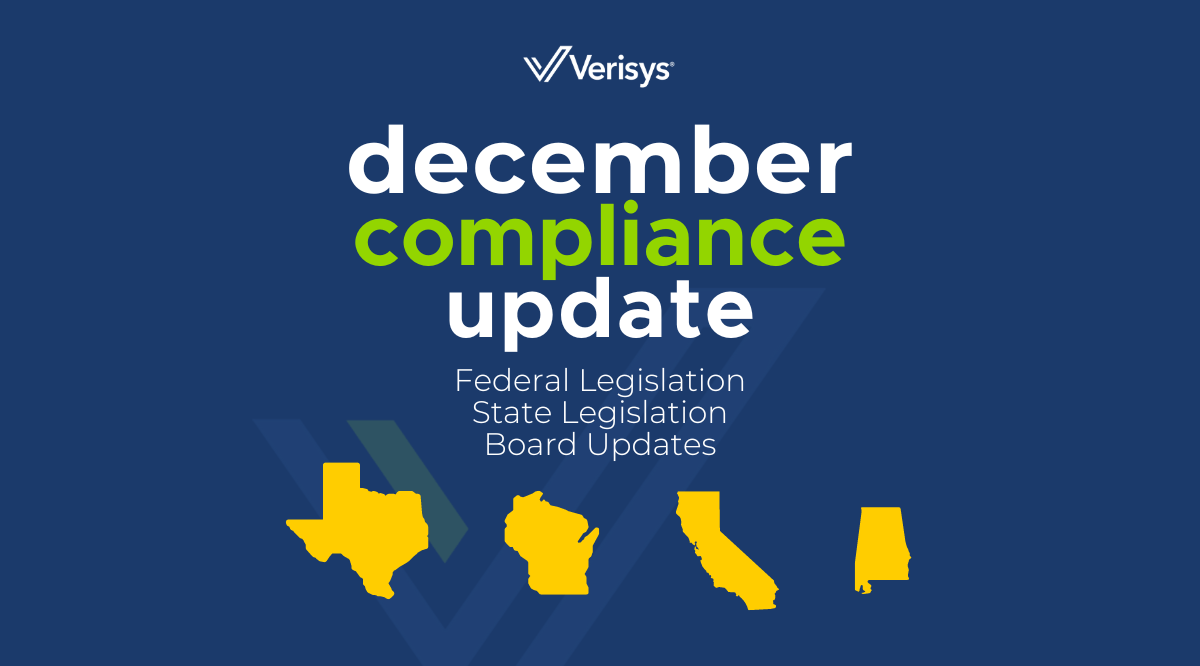– The best resource for monthly healthcare regulatory compliance updates. Compliance Updates: April 2024 Overlook: Licensure Compacts Other Legislation Board Updates Interstate Medical...


Compliance Updates: December 2023
The TREATS Act has been proposed which would amend the Controlled Substances Act to allow for the use of telehealth in substance use disorder treatment. This bill is currently in committee.
The DEA and Department of Health and Human Services (HHS) has announced the extension of current telemedicine flexibilities through December 31, 2024. In particular, practitioners are allowed to prescribe controlled medications via telemedicine, even when the practitioner has not conducted an in-person evaluation. These flexibilities also allowed practitioners to prescribe schedule II–V controlled medications via audio-video telemedicine encounters, including schedule III–V narcotic controlled medications for maintenance and withdrawal management treatment of opioid use disorder via audio-only telemedicine encounters. The DEA and HHS expect to release the final telemedicine regulations by the fall of 2024.
DEA Telehealth Extension Announcement
A new rule concerning multistate licensees who move to another party state will be effective January 1, 2024. Rule 402(2) states that when a multistate licensee changes primary states of residence to another NLC party states, they shall apply for a multistate license in the new residence state within 60 days.
The following statutes and rules actions have been adopted by the Alabama Board of Pharmacy:
Beginning January 1, 2024, recently passed legislation Senate Bill 815 will go into effect. This legislation significantly changes licensure requirements, fees, disciplinary processes and enforcement, and expiration dates for the Medical Board of California.
Beginning September 1, 2023, certain previously required CE subject requirements have expired for pharmacist license renewal per Board Rule 295.8. This has simplified CE requirements for regular and initial pharmacist renewal.
The Wisconsin Department of Safety and Professional Services (DSPS) and the Universities of Wisconsin announced an agreement today that will allow the Universities to help facilitate the occupational licensing process for their students entering health care fields. Representatives from the Universities will be able to log in to LicensE and view student rosters, verify graduation dates, verify program completion, and generally monitor their students’ progression through the licensing process. LEAP also allows the Universities to save time by notifying DSPS of graduation through a “batch” process for each graduating class, instead of the previous process of attaching a statement of graduation for each of their students applying for a professional license.
Wisconsin has enacted legislation to join the Physician Assistant Licensure Compact. Wisconsin is the third state to join the compact (Utah and Delaware have already signed). The compact becomes effective when seven states have joined.
Disclaimer: This information has been gathered from a variety of sources. Although Verisys has made every effort to provide complete, accurate and up-to-date information, Verisys makes no warranties, express or implied, or representations as to the accuracy or reliability of this information. The information is fluid and evolving. Verisys assumes no liability or responsibility for any errors or omissions in the information contained in this resource.